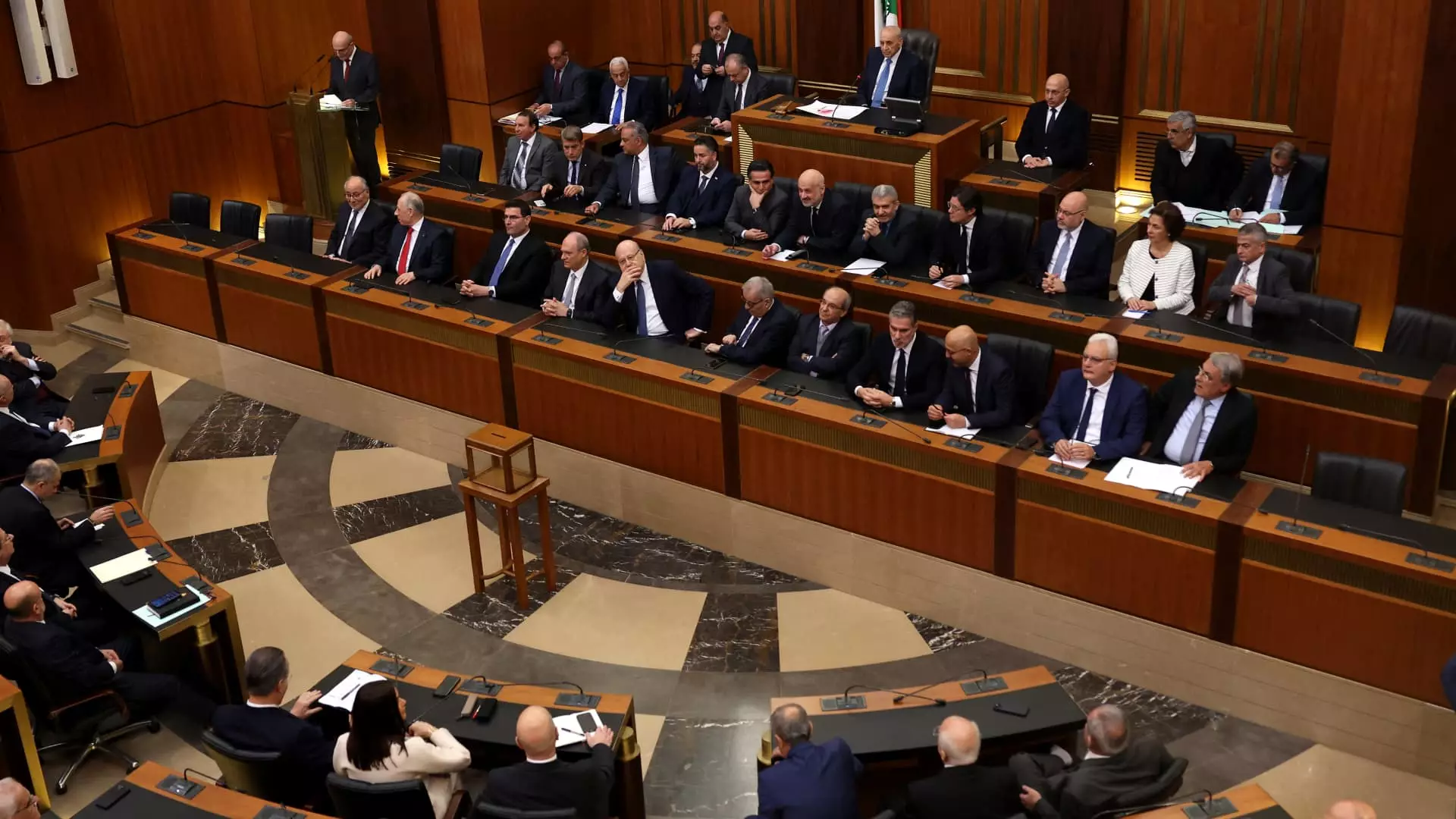In a significant political development for Lebanon, the appointment of General Joseph Aoun as the new president marks a distinct pivot in the nation’s longstanding power dynamics. This change comes amidst a backdrop of significant regional shifts, revealing the complexities surrounding Lebanon’s governance and the ongoing struggle between domestic factions and external influences.
On Thursday, Lebanon’s parliament overwhelmingly voted Joseph Aoun into the presidency, an office that has been mired in vacancy since Michel Aoun’s term concluded in late 2022. The political stagnation was primarily due to intense factional divides, which rendered collaborative governance nearly impossible within the country’s sectarian framework. With the Lebanese political system mandating that the presidency be held by a Maronite Christian, Aoun’s ascension symbolizes more than a mere electoral victory; it reflects a recalibration of Lebanon’s political landscape influenced significantly by the aftermath of last year’s war with Israel and the corresponding weakening of the Iran-backed Hezbollah group.
Hezbollah’s influence, once dominant within Lebanon’s political machinations, has substantially eroded, particularly following the destabilizing conflict that left its military and political standing compromised. Meanwhile, the political revival of traditional ally Saudi Arabia hints at a strategic recalibration in regional allegiances that may alter future political calculations in Lebanon.
The election of Aoun is emblematic of a broader geopolitical strategy involving major powers such as the United States and traditional regional players like Saudi Arabia and France. Notably, Aoun’s candidacy received endorsement from Hezbollah’s long-favored candidate, Suleiman Frangieh, who dramatically withdrew from contention, underscoring the intricate web of alliances that continue to shape Lebanese politics. The electoral support Aoun received signals the desire from the international community to stabilize Lebanon—a country still reeling from a catastrophic financial collapse in 2019.
According to various political sources, U.S., French, and Saudi officials made it clear that any potential financial support would hinge on the election of a president capable of restoring legitimacy and order in the country. This revelation accentuates how foreign policy and economic assistance are deeply intertwined with Lebanon’s internal dynamics, essentially making the nation’s governance susceptible to external dictates.
Prospective Challenges Ahead
Aoun’s election is undoubtedly a crucial first step toward re-establishing governance structures in a nation devoid of both a president and a fully functioning cabinet. However, the journey ahead involves a highly intricate process of nominating a government, particularly given that Lebanon’s political landscape is rife with competing interests. Traditionally, sectarian bargaining dictates that the president must engage with the legislative assembly to appoint a Sunni Prime Minister, a task that can stretch into protracted negotiations fraught with contention over ministerial responsibilities and power-sharing arrangements.
Moreover, Aoun, who has led the Lebanese army since 2017 with sustained support from the United States, must navigate the complexities of securing a sustainable ceasefire with Israel while managing internal discord. His role will be vital in ensuring that the Lebanese military can assert its presence in southern Lebanon, a region historically fraught with cross-border tensions.
The Road to Reconstruction
As Lebanon grapples with staggering economic woes, which the World Bank estimates have inflicted damages worth approximately $8.5 billion, the immediate support from international investors and organizations is critical. Aoun’s leadership will be put to the test as he tries to rebuild a nation that continues to struggle under the weight of its political and financial crises.
His ties to external powers and the shift in regional relations will provide Aoun with necessary leverage but will also demand consistent alignment with international expectations regarding governance and stability. The resolution of Lebanon’s political deadlock may pave the way for essential reforms, thus opening channels for economic assistance that the country desperately requires.
Joseph Aoun’s presidency carries profound implications for Lebanon’s future, highlighting the intricate interplay between domestic politics and international influence. Whether this newly structured leadership can establish stability and address systemic challenges remains to be seen but is undoubtedly a focal point for both Lebanese citizens and the broader region alike.


Leave a Reply